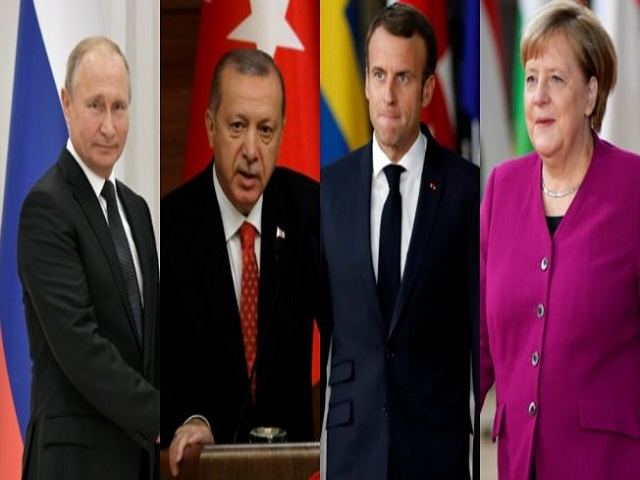Turkey to host Syria summit with Russian, French, German leaders
Sat 27 Oct 2018, 15:30:57

ISTANBUL: The leaders of Turkey, Russia, France and Germany meet in Istanbul on Saturday to try and find a lasting political solution to the Syrian civil war and consolidate a fragile cease-fire in a rebel-held northern province.
Turkish President Recep Tayyip Erdogan will host Russian President Vladimir Putin, French President Emmanuel Macron and German Chancellor Angela Merkel for a summit on the conflict, in which more than 360,000 people have been killed since 2011.
Russia, which supports the regime of Syrian President Bashar Assad, and Turkey, which backs the rebels, have held previous talks with Iran on the issue, in efforts that have often been greeted with suspicion in the West.
But Saturday’s summit will be the first to bring together the Turkish and Russian leaders with the European Union’s two most significant national leaders.
Turkish presidential spokesman Ibrahim Kalin said on Friday that the primary goal would be to “clarify the steps to be taken for a political solution and to determine a roadmap.”
Forming a commission to create Syria’s post-war constitution, seen as a stepping stone to staging elections in the war-torn country, would be a particular point of emphasis, Kalin told the state-run news agency Anadolu.
The talks will also look to extend a cease-fire around the last major rebel-held bastion of Idlib, where aid groups have warned that a military offensive could spark one of the worst humanitarian disasters of the seven-year war.
With an assault by government troops seeming imminent, last month Russia and Turkey agreed to create a demilitarised buffer zone ringing Idlib, home to three million people.
The September 17 deal for the 15-20 kilometer-wide zone came after a flurry of activity as Turkey sought to avoid an assault leading to a further influx of people across its border.
However shelling in the area has continued intermittently, and the Syrian Observatory for Human Rights said
Syrian regime artillery fire killed seven civilians in Idlib on Friday — the highest death toll there since the cease-fire deal.
Syrian regime artillery fire killed seven civilians in Idlib on Friday — the highest death toll there since the cease-fire deal.
The participants have damped down hopes of a long-term solution ahead of the summit, with France’s Elysee palace saying there were “modest expectations” and Putin’s spokesman Dmitry Peskov urging everyone to be “realistic.”
Peskov said that while all sides want a political settlement in Syria, “certain disagreements may exist regarding the instruments and tactics.”
“The issue of the day is to reconcile different formats in order to synchronize our watches, to negotiate, and to attempt to identify common topics,” he said.
While two key global players in the Syria conflict — Iran and the United States — will be absent, Macron said he briefed US President Donald Trump on strategy this week.
The push by Turkey and Russia has overshadowed a rival United Nations-backed political process, which has been hampered by the Syrian regime’s refusal of “any foreign interference” in writing the new constitution.
However France and Germany’s inclusion in Saturday’s summit could help Turkey’s bargaining position, as all three share the same view of Assad’s regime, said Jana Jabbour, professor of political science at Sciences Po university in Paris.
The talks could even let Erdogan “try to normalize relations with Europe” and show he can be “a good partner with the West” after relations were badly affected by Ankara’s crackdown over a failed coup in 2016.
Anthony Skinner, director for Middle East and North Africa at the Verisk Maplecroft consultancy, said the summit fits with Ankara’s broader strategy, “one plank of which is to further solidify its position as a vital working partner for Russia and the Europeans.”
The summit is expected to start at around 4:00 p.m. (1300 GMT) and the four leaders are expected to issue a joint statement ahead of individual press conferences.
No Comments For This Post, Be first to write a Comment.
Most viewed from International
Most viewed from World
AIMIM News
Latest Urdu News
Most Viewed
May 26, 2020
Do you think Canada-India relations will improve under New PM Mark Carney?
Latest Videos View All
Like Us
Home
About Us
Advertise With Us
All Polls
Epaper Archives
Privacy Policy
Contact Us
Download Etemaad App
© 2025 Etemaad Daily News, All Rights Reserved.



.jpg)






.jpg)
.jpg)








.jpg)
.jpg)
.jpg)
.jpg)
.jpg)

















